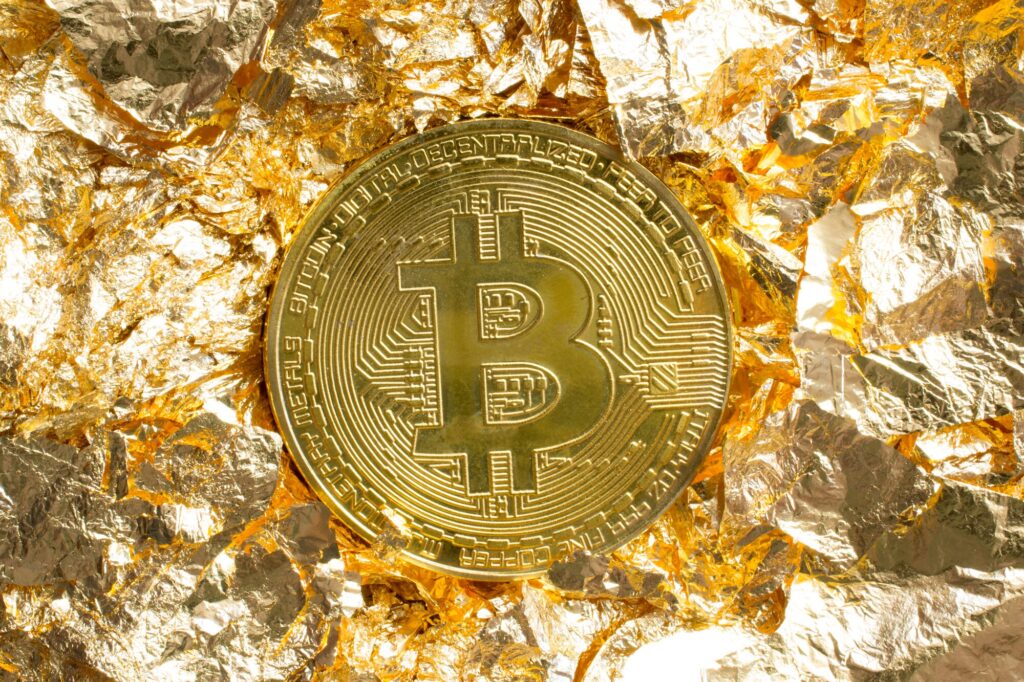Is Bitcoin the New Digital Gold? A Deep Dive into Its Role as a Store of Value
Explore whether Bitcoin truly deserves the title "digital gold" as a store of value. Learn about its properties, and investor perspectives.
Can Bitcoin really replace gold as the ultimate safe-haven asset?
The idea of “digital gold” has captivated both crypto enthusiasts and traditional investors alike. As Bitcoin matures, many question whether it can truly serve the same purpose as gold: a reliable store of value during times of economic uncertainty.
Gold has been trusted for thousands of years. Bitcoin, meanwhile, is barely over a decade old. Yet the comparisons persist — and in some cases, intensify.

Why the ‘Digital Gold’ Narrative Exists
Bitcoin’s limited supply — capped at 21 million — mirrors gold’s scarcity. Unlike fiat currencies that central banks can print endlessly, Bitcoin offers a predictable issuance schedule.
Just like gold, Bitcoin operates independently of any government. This decentralized nature makes it attractive to those looking for protection against inflation or currency devaluation.
Its portability and divisibility further add to the comparison. While gold needs to be stored physically, Bitcoin can be transferred globally in minutes, with minimal cost.
Store of Value: A Core Metric
A key feature of any asset dubbed a “store of value” is its ability to preserve purchasing power over time. Historically, gold has excelled in this role, especially during crises.
Bitcoin’s performance in recent years has shown significant price appreciation. Despite its volatility, long-term holders (known as HODLers) argue that it has outperformed many traditional assets.
However, unlike gold, Bitcoin is still relatively young. It hasn’t yet been tested across multiple economic cycles the way gold has been for centuries.
Volatility: Friend or Foe?
One of the main criticisms of Bitcoin as digital gold is its volatility. Price swings of 10% or more in a single day are not uncommon. For some investors, this makes it too risky to serve as a stable store of value.
Gold, on the other hand, tends to move slowly and predictably. Its value may rise during financial turmoil, but it rarely crashes overnight.
Proponents argue that Bitcoin’s volatility is decreasing over time. As adoption grows, its price may stabilize — but this remains speculative.
Institutional Confidence is Growing
In recent years, institutions have started to treat Bitcoin more seriously. Publicly traded companies have added it to their balance sheets. Investment funds and banks now offer Bitcoin-related products.
These moves give Bitcoin a degree of legitimacy it lacked in its early years. This growing institutional confidence aligns it more closely with the trust traditionally placed in gold.
However, Bitcoin still faces regulatory uncertainty. Governments and financial watchdogs continue to debate how it should be treated, which can impact investor sentiment.
Liquidity and Accessibility
Another strength of Bitcoin is its accessibility. Anyone with internet access can own it, regardless of location. This democratizes investment in a way gold never could.
Markets for Bitcoin operate 24/7, unlike gold markets which follow traditional business hours. This constant availability is a big plus for investors in the digital age.
Moreover, fractional ownership allows people to invest in Bitcoin with as little as a few dollars. This stands in contrast to physical gold, which often requires bulk purchases.
Security and Storage
While gold requires vaults and physical protection, Bitcoin’s security relies on cryptographic keys and blockchain networks. For many, this represents a safer and more modern method of safeguarding wealth.
However, this also introduces new risks. If a user loses their private keys or falls victim to a hack, their Bitcoin may be irretrievable. Gold, while physical, does not suffer from these digital vulnerabilities.
Each asset, therefore, has trade-offs in terms of security and maintenance.
Which One Should You Trust?
The answer depends on your financial goals and risk tolerance. Gold is proven, conservative, and stable. Bitcoin is innovative, dynamic, and still evolving.
For some, a blend of both assets provides the best of both worlds: the historical reliability of gold and the disruptive potential of Bitcoin.
As the world becomes increasingly digital, Bitcoin’s role may continue to expand — but calling it the definitive “digital gold” may still be premature.
Conclusion: A Parallel, Not a Replacement
Bitcoin and gold can coexist. While they share certain traits, they serve slightly different roles. One is steeped in tradition, the other in technology.
So, is Bitcoin the digital gold? Perhaps not fully — yet. But it’s certainly staking a credible claim.
And in a world searching for new forms of value, that’s more than enough to keep watching.





